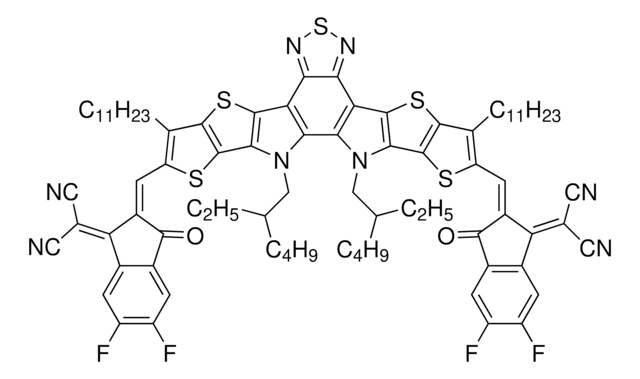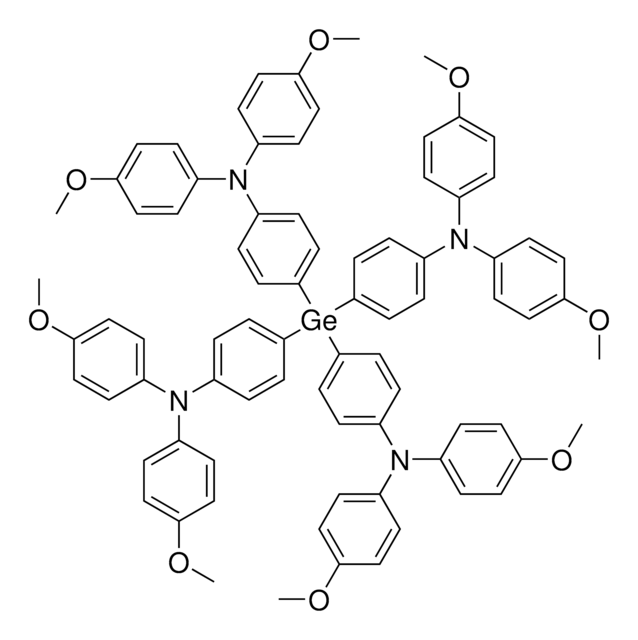753947
ICMA
97% (HPLC)
Synonym(s):
1′,4′-Dihydro-naphtho[2′,3′:1,2][5,6]fullerene-C60, C60 derivative, indene-C60 monoadduct
About This Item
Recommended Products
Assay
97% (HPLC)
form
solid
loss
0.5 wt. %, 390 °C
mp
320-340 °C
Orbital energy
LUMO 3.84 eV (CV)
OPV Device Performance
ITO/PEDOT:PSS/P3HT: ICMA (1:1)/Al
ITO/PEDOT:PSS/P3HT:ICMA(1:1)/LiF/Al
Looking for similar products? Visit Product Comparison Guide
General description
Storage Class Code
11 - Combustible Solids
WGK
WGK 3
Flash Point(F)
Not applicable
Flash Point(C)
Not applicable
Certificates of Analysis (COA)
Search for Certificates of Analysis (COA) by entering the products Lot/Batch Number. Lot and Batch Numbers can be found on a product’s label following the words ‘Lot’ or ‘Batch’.
Already Own This Product?
Find documentation for the products that you have recently purchased in the Document Library.
Customers Also Viewed
Articles
Organic materials in optoelectronic devices like LEDs and solar cells are of significant academic and commercial interest.
Single-walled carbon nanotubes (SWCNTs) are promising materials for use in the active channel of field-effect transistors (FETs), photoabsorbing layers of solar cells and photodetectors because of their ultrafast charge transport mobility.
Solution-processed organic photovoltaic devices (OPVs) have emerged as a promising clean energy generating technology due to their ease of fabrication, potential to enable low-cost manufacturing via printing or coating techniques, and ability to be incorporated onto light weight, flexible substrates.
Progress in solution-processed functional materials leads to thin-film optoelectronic devices for industrial and consumer electronics.
Our team of scientists has experience in all areas of research including Life Science, Material Science, Chemical Synthesis, Chromatography, Analytical and many others.
Contact Technical Service


![[6,6]-Phenyl C71 butyric acid methyl ester, mixture of isomers 99%](/deepweb/assets/sigmaaldrich/product/structures/716/624/9fb9f2f0-ae99-429f-8d3a-b12267976a4d/640/9fb9f2f0-ae99-429f-8d3a-b12267976a4d.png)

![[6,6]-Phenyl C61 butyric acid methyl ester >99.5%](/deepweb/assets/sigmaaldrich/product/structures/359/221/d990c746-0960-4c69-bf76-fe09b193824d/640/d990c746-0960-4c69-bf76-fe09b193824d.png)


![[6.6] Diphenyl C62 bis(butyric acid methyl ester)(mixture of isomers) 99.5%](/deepweb/assets/sigmaaldrich/product/structures/213/478/93c26667-6556-40bb-8cbe-350bdbabfc00/640/93c26667-6556-40bb-8cbe-350bdbabfc00.png)

